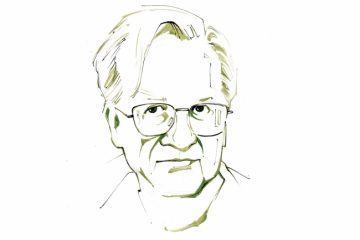Hayden White and Robert Pogue Harrison in The Chronicle:
 Hayden White, the philosopher of history whose classic Metahistory (1973) has had an enduring influence on the humanities, died last year. In a career spanning half a century, White, whose appointments included Stanford University and the University of California at Santa Cruz, provoked, alarmed, and invigorated professional historians and lay readers alike. In Metahistory and elsewhere, White insisted that “facts do not speak for themselves. The historian speaks for them, speaks on their behalf, and fashions the fragments of the past into a whole whose integrity is … a purely discursive one.” Because such fashioning of fragments is a kind of storytelling, White believed that historians need a theory of literary narrative, a way of grasping their work’s adherence to the laws of tragedy, comedy, and farce. Though influential, this fundamentally interdisciplinary position remains controversial, as the dust-up around a recent Chronicle Review essay extolling White demonstrated.
Hayden White, the philosopher of history whose classic Metahistory (1973) has had an enduring influence on the humanities, died last year. In a career spanning half a century, White, whose appointments included Stanford University and the University of California at Santa Cruz, provoked, alarmed, and invigorated professional historians and lay readers alike. In Metahistory and elsewhere, White insisted that “facts do not speak for themselves. The historian speaks for them, speaks on their behalf, and fashions the fragments of the past into a whole whose integrity is … a purely discursive one.” Because such fashioning of fragments is a kind of storytelling, White believed that historians need a theory of literary narrative, a way of grasping their work’s adherence to the laws of tragedy, comedy, and farce. Though influential, this fundamentally interdisciplinary position remains controversial, as the dust-up around a recent Chronicle Review essay extolling White demonstrated.
Such literary concerns inevitably turn on questions of scholarship’s purpose and ethos. What is the point of historical writing? What kind of author is a historian? What is education good for? In a never-published 2008 interview with Robert Pogue Harrison, a professor of literature at Stanford University, White reflected on a topic of particular urgency in 2019: the purpose of the humanities.
More here.
